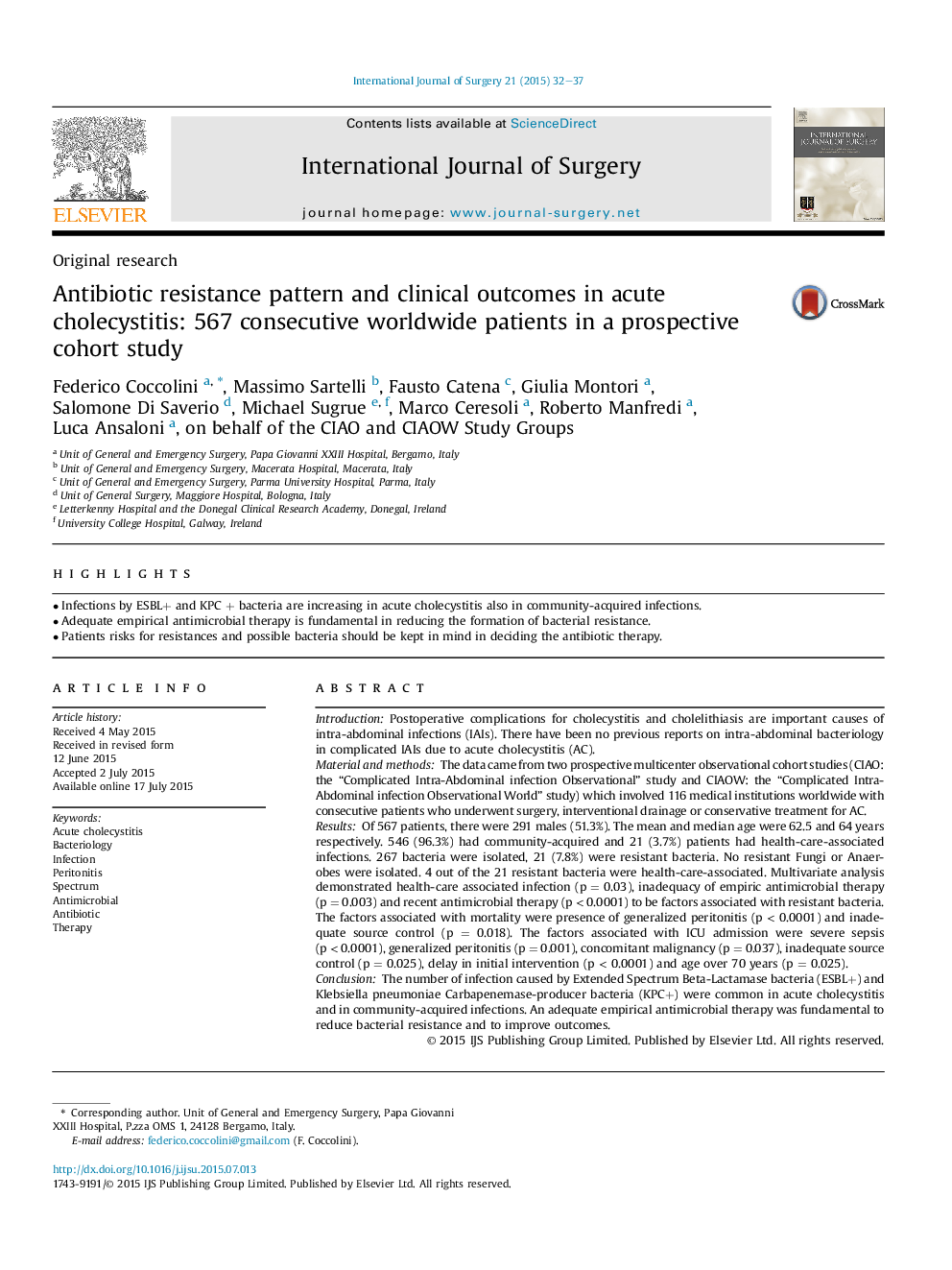| کد مقاله | کد نشریه | سال انتشار | مقاله انگلیسی | نسخه تمام متن |
|---|---|---|---|---|
| 6250916 | 1611971 | 2015 | 6 صفحه PDF | دانلود رایگان |
- Infections by ESBL+ and KPC + bacteria are increasing in acute cholecystitis also in community-acquired infections.
- Adequate empirical antimicrobial therapy is fundamental in reducing the formation of bacterial resistance.
- Patients risks for resistances and possible bacteria should be kept in mind in deciding the antibiotic therapy.
IntroductionPostoperative complications for cholecystitis and cholelithiasis are important causes of intra-abdominal infections (IAIs). There have been no previous reports on intra-abdominal bacteriology in complicated IAIs due to acute cholecystitis (AC).Material and methodsThe data came from two prospective multicenter observational cohort studies (CIAO: the “Complicated Intra-Abdominal infection Observational” study and CIAOW: the “Complicated Intra-Abdominal infection Observational World” study) which involved 116 medical institutions worldwide with consecutive patients who underwent surgery, interventional drainage or conservative treatment for AC.ResultsOf 567 patients, there were 291 males (51.3%). The mean and median age were 62.5 and 64 years respectively. 546 (96.3%) had community-acquired and 21 (3.7%) patients had health-care-associated infections. 267 bacteria were isolated, 21 (7.8%) were resistant bacteria. No resistant Fungi or Anaerobes were isolated. 4 out of the 21 resistant bacteria were health-care-associated. Multivariate analysis demonstrated health-care associated infection (p = 0.03), inadequacy of empiric antimicrobial therapy (p = 0.003) and recent antimicrobial therapy (p < 0.0001) to be factors associated with resistant bacteria. The factors associated with mortality were presence of generalized peritonitis (p < 0.0001) and inadequate source control (p = 0.018). The factors associated with ICU admission were severe sepsis (p < 0.0001), generalized peritonitis (p = 0.001), concomitant malignancy (p = 0.037), inadequate source control (p = 0.025), delay in initial intervention (p < 0.0001) and age over 70 years (p = 0.025).ConclusionThe number of infection caused by Extended Spectrum Beta-Lactamase bacteria (ESBL+) and Klebsiella pneumoniae Carbapenemase-producer bacteria (KPC+) were common in acute cholecystitis and in community-acquired infections. An adequate empirical antimicrobial therapy was fundamental to reduce bacterial resistance and to improve outcomes.
Journal: International Journal of Surgery - Volume 21, September 2015, Pages 32-37
